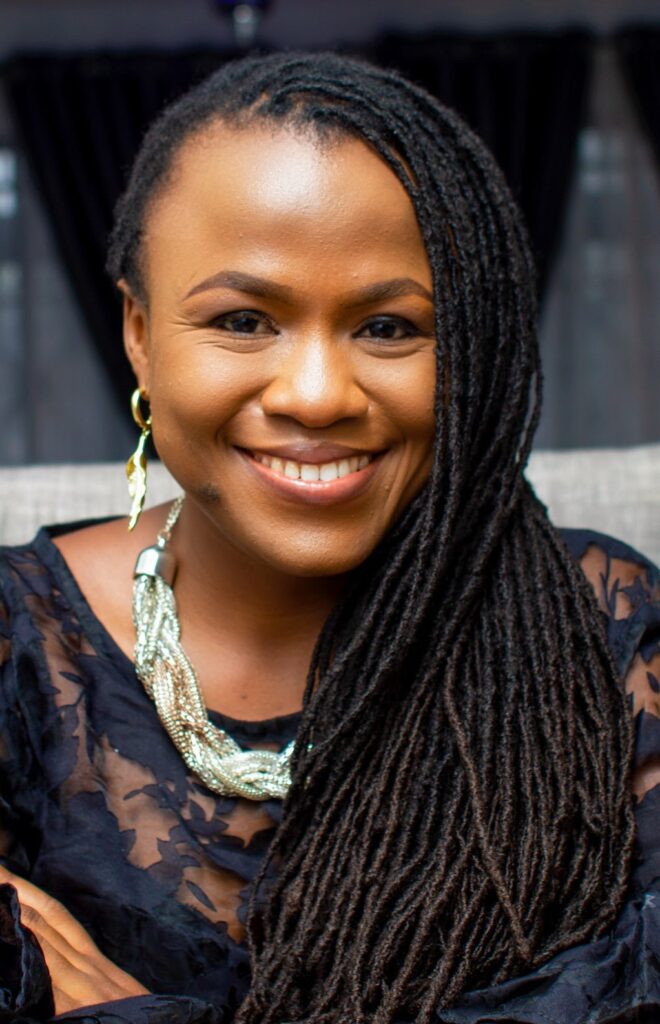On the first day of the seventh month of the year 2165, Adunni Adedibu’s troubles started.
It started small. With one #word on the Sociogram. One #word scrolling repeatedly on the fount-screen at the train station at the city centre. For centuries, it had been difficult to allot a centre to the growing city that had expanded beyond its birth spot at Mapo Hill, extending as far as the Lagos border where a huge toll gate now screams: #Bye #badan. The first train station on entering Ibadan was called the centre—it connects the entire city.
#DownBrownRoof. The #word came at the busiest time of the day. 7 am. As the Ibagosians—those people who live in Ibadan and work in Lagos, or vice-versa—went to work. By 7 pm when they returned, the #word was trending again. The agenda of the campaigners: the last Brown Roof sitting low in the middle of the high rising skyscrapers must go down. One hundred and fifty years before, there had been a cluster of the brown roofs, each sitting firmly within a family compound, carrying within it centuries of family histories. Now, all that was left was one. There had been several previous attempts to take it down. In fact, that it was still standing was nothing short of a miracle.
The bigger the word grew, the more troubled Adunni Adedibu was. She cupped her face in her palms. Her fingers sitting right in the tribal marks on her face. A true daughter of Ibadan, one of the last with the traditional marks linking her to her family, linking her family to her family heritage. She had thought that like earlier campaigns, this media campaign, would die without notice.
“It is just noise, soon they will scream themselves deaf.” She said to no one on the first day.
Only that this one refused to die. Instead, it kept on raging and sweeping along everything in its way. The more she thought about it, the more she stared at her Sociogram page on her right palm, the worrier she got. The wrinkles on her face, bolder. Her heartbeat, faster. Her sighs, longer.
That night, a disturbed 80-year-old Adunni, the protector of the last brown roof knew she had to do something fast before this trouble grows so big and swallows her in the belly of the brown roof.
She called her daughter Agbeni to the Brown Roof. According to tradition, the priestess never leaves the house after dusk. They knew the plan of the anti-Brownie campaigners: lay siege on the Brown Roof; walk around it for the next six days; pull it down on the last day. They knew their funders: business moguls with connections all over the world. The weight of the future of the brown roof, of their future, weighed Adunni down, made her slouch on her bed and sigh deeply.
“Agbeni, my daughter, she started. I see all that you have been doing,” Adunni started, referring to Agbeni and Brownies—her group of friends who mobilised until Brown Roof became a United World Heritage site the previous year. This meant that the building had cultural value and should be preserved. However, the anti-Brownie campaigners cared not for heritages or cultural value. They only knew the smell of money.
“Maami, we have to do everything to ensure that the brown roof outlives us,” she said.
“True, my daughter. Only that today, I want to tell you a story.”
Agbeni always loved Adunni’s stories. As a child, she knew of Lagelu around whom the city of Ibadan grew. A strong warrior had left Oyo with other warriors to stand guard between some forests and plains to protect Oyo from invasions. The longer Lagelu—who Agbeni imagined as a tall handsome man—stayed there, the more people were drawn to the area. One misdeed—a masquerade stripped naked in the market square—drew the ire of the king of Oyo. There was an invasion of the young city. At this point, a frail Lagelu could only hide for cover in a nearby hill. There they ate òro—a fruit that would become their local delicacy. So, when Adunni said she wanted to tell a story, Agbeni remembered those days when she would gather with the other community children, making a circle around her mother in the last brown roof which sat elegantly in the middle of other brown roofs, the moon shining bright in the sky.
Tonight, there was only one brown roof left, others had been destroyed. Tonight, the children that lived in the other brown roofs had long made houses in other parts of the city or other cities like neighbouring Lagos, Ile-Ife and Osogbo. They were lost to their heritage, to the secrets hidden under the brown roofs. And all the special artworks and powers passed down from Lagelu and his own children now sit in the last brown roof.
“Today, I will tell you about these thieves.” Adunni started as Agbeni looked on, smiling.
***
It was when the first train station arrived in 2021 that the first set of land grabbers came. They came wearing government toga, speaking big big English and surrounded by strange looking yellow-skin men that spoke an even stranger language. They came, took the lands from the locales and exchanged them with small small change. Then, came the tractors which dug out the farms and bulldozed the buildings. Then came the road that led to the train. Then, came the train that brought the next land grabbers.
After the train came the real estate agents, promising cows and bags of rice at Ileya for plots of land, assuring to provide support to build foundations of houses just to twist money out of people’s hands. Five people paid for the same plots. Lands were exchanged for court cases. Court cases dragged on for years.
It was after these people that the omo-oniles, sons of the original landowners, took over. Bastard sons of the land exchanging communal earth for peanuts. One by one, the brown roofs fell, becoming rubbles, and replaced by skyscrapers. Then, there were only seven left. These seven were the last of the whole lot. This seven remained until a strange meeting in Lagos.
Train builders, estate agents and sons of the soil took the lands…and left in their wake nothing but destruction.
“You must save us,” Adunni said.
Agbeni nodded. She heard every word her mother did not say. And she knew what to do.
“Our ancestors will go with you.”
***
The next day, Agbeni and the Brownies devised a plan. They would march around the State Secretariat; they would Livestream it and share it with the world. Everyone had to see everything that was happening in the city. Maybe if the wind blew the feathers covering the chicken’s anus open, the whole world will see the watery faeces hidden there. Maybe if the world knew what was happening in Ibadan, the state government would be shamed into respecting the last brown roof as a world heritage site.
“The state is signed to several cultural treaties. But we can only sign, we cannot execute.”
“Yes,” responded her friends.
“Signing is not enough. Obey the laws”
“Obey the laws, obey the laws.” Chanted her friends.
At the brown roof itself, Adunni did not expect the huge crowd outside. On one side were the religionists; religion, their mask. On another side were the estate agents; their bellies, their gods. And between these two wedged the omo oniles, who had sold their inheritance for a plate of porridge.
The chants were disturbing.

“Down with fetish. Our religions forbid it.” The religionists shouted and danced and clapped and fell into trances. Adunni stared them in the eye, one hand on her walking stick and responded.
“We do not use any fetish. Come in; see for yourself. Everything is from other brown roofs your love for money destroyed.”
“Time to progress. Down Brown Roofs.” The estate agents screamed and paced and debated till the veins of their neck bulged. Adunni responded in her calm voice.
“When did progress equal the destruction of our heritage? We go nowhere if we destroy our past.”
“Old witch,” the omo oniles called out. “You have killed off all our family members.”
“It is your greed that killed, and continues to kill, your lineage. Eyin omo alainiiran jatijati,” Adunni topped her curse with a long hiss as she turned around and returned to the house.
Agbeni and the Brownies were at the Secretariat. They sang and spoke and educated people on the significance of the heritage site. A Special Envoy was sent from the United Nations to support their cause. The real battle was with the sceptics—those who did not believe the Brown Roof had any value. And the ignorant—those who had never heard of the Brown Roof.
And Adunni, never left the Brown Roof. A priestess never leaves the Brown Roof in troubled times. She remembers stories that her mother and her grandmother told her of how other priests of the Owolowa, the Ibomija and the Aniseda clans were tricked. Years ago, they were invited to a roundtable on housing with some business moguls in Lagos. Each fed fat on food; drank to their fill; lodged in the best hotel and at the end of the day signed beneath some dotted lines. When they got back, the brown roofs were gone, bulldozed. Their families disbanded. They fought in court. Wasted money paying lawyers. Got some compensation. More brown roofs fell. On that day, her own great-grandmother, the only priestess of brown roofs, had refused to go for roundtables in troubled times. And her defiance is the only reason the house still stands. Adunni was determined to stand too.
The battle raged for the next two days. The campaigners were at the Brown Roof, as early as the first train. They marched; chanted; raised placards and shared handbills. Brownies did same at the Government Secretariat.
***
On the fourth day, several other #words and ≠words (counter hash—or harsh words) were trending on the Sociogram but #DownBrownRoof and #LongliveBrownRoof were the most popular; the boldest on the fount-screen. The battle got physical. A clash at the train station when one anti-Brownie bit off the ear of a Brownie. Students booing an anti-Brownie teacher. Stones thrown at a Brownie-legislator. Then, the state stepped in and asked for Special Vote with the YGWYV platform—short code for You Get Wetin You Vote—it was the platform used during the last gubernatorial elections. To give everyone a voice, voting would go on for two days. People preferred the YGWYV over others because it was transparent—as you enter your vote, anyone at one of the many election screens around the city could see it.
On the seventh day, after the first #word; on the sixth day after the sit-outs began; and the third day after the battle was taken to the votes; the results were declared. The people decided: the last Brown Roof would remain for 100 years. That is the lifespan of the results of Special Votes.
The rejoicing crowd carried Agbeni on their shoulders from the Secretariat to the Brown Roof. They met silence. Shame had dispersed the anti-Brownies. Adunni sat on the only chair in the room; her walking stick beside it; her head tilted to the left, at an angle that shows she had been staring at her left palm. Worry had not let her eyes close in sleep the previous night but had shut them in eternal sleep.
Adunni was deified as the goddess of the Brown Roof. Many believed that as she slumbered off into the world beyond, she swayed human minds to favour the Brown Roof. The one worshipped every seventh day of the seventh month of the year. The one that never answers the prayers of industrialists. The one that will always grant the wishes of her people.
The rusty dusty brown of the Last Brown Roof shines on. Daily, it attracts people from every part of the world.
Agbeni sleeps there every night, with her ancestors, watching over the last Brown Roof.




